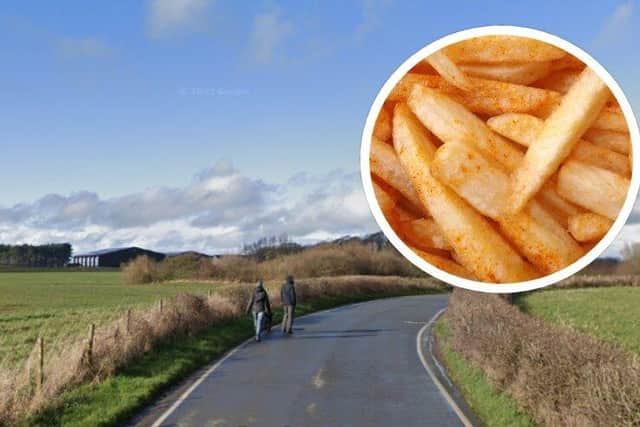Fylde chips and mash factory’s ‘potato power’ plans put on the backburner by council committee
and live on Freeview channel 276
The so-called "anaerobic digestion" facility - proposed for Stanley Villa Farm, in Weeton with Preese - would be powered by a combination of spud peelings from the production line next door and animal manure and crops imported from other farms.
Lancashire County Council planning officers had recommended that members of the authority’s development control committee grant permission for the energy-generating kit, but councillors instead voted to visit the site first.
Advertisement
Hide AdAdvertisement
Hide AdTheir decision came after they heard concerns from nearby residents and raised their own questions about how the narrow Back Lane, which leads to the farm, would cope with the huge increase in heavy goods vehicles that would be using it.


If it is ultimately approved, the plant - proposed by Farm Generation Ltd. - would produce enough power to heat 3,000 homes and would complement an existing anaerobic digestion unit that has been operating on the plot for almost 10 years. That facility uses waste solely generated from the site itself, which then powers the food manufacturing process that takes place there. Any surplus electricity is fed into the grid.
The committee meeting heard that the proposed new facility would utilise any on-site potato waste that was not being accommodated by the current aerobic digestion set-up, along with externally sourced material like chicken manure and maize.
The development would lead to an extra 3,700 HGV trips to and from the site each year - both to deliver the material needed for the plant and to carry away the waste ‘digestate’ produced as part of the process, which would be sent to other farms for use as a crop fertiliser.
Advertisement
Hide AdAdvertisement
Hide AdAlthough the extra HGV movements would account for only 10 percent of all lorry trips associated with the farm and factory operation, committee members wanted convincing that proposed highway alterations on Back Lane - including the widening of some stretches and the addition of passing places - would be sufficient.
County Cllr Eddie Pope said that he not only wanted to see the site, but also the detail of the suggested road safety measures. A condition attached to the recommended permission required that that information be submitted for assessment and approval by highways chiefs only after the committee had reached its decision - but he said it should be presented beforehand, so that members themselves could make a judgement. Principal planning officer Jonathan Haine said that the highway plans would now be requested from the applicant on that basis.
Fellow committee member Steve Holgate said that while anaerobic digestion was an “effective” and “admirable” green energy source, “it has got to be put in the right place” - adding that he was not certain that the plans on the table met that criteria.
Five objections had been made to the application, but local resident Jonathan Johnson, who runs a nearby caravan park, said that not enough people had been informed of the proposal by County Hall. He told the committee that people living in the most “densely populated” part of the local area, on Greenhalgh Lane, knew nothing of the plans.
Advertisement
Hide AdAdvertisement
Hide AdMr. Johnson said that they, like him, lay in the path of the prevailing wind from the site and so would “bear the brunt” of any increased activity - omcluding the noise of the extra HGVs being loaded and unloaded.
“It damages the characteristics of the countryside, which have been developed [with the aim of] supporting tourism,” he warned.
However, one of the directors of Farm Generation, Simon Lever, said that the firm’s proposal chimed with the country's carbon-reduction ambitions.
“Our proposed anaerobic digester will play a significant role in the UK’s transition to a low-carbon economy by producing renewable energy in the form of biomethane. Biomethane is a sustainable alternative to fossil fuels and its injection into the mains gas grid will reduce our reliance on non-renewable energy sources.
Advertisement
Hide AdAdvertisement
Hide Ad“This project directly contributes to the UK’s commitment to achieving net-zero emissions by 2050,” Mr. Lever added.
The committee will now take a trip to the site before considering the application again at a later date.